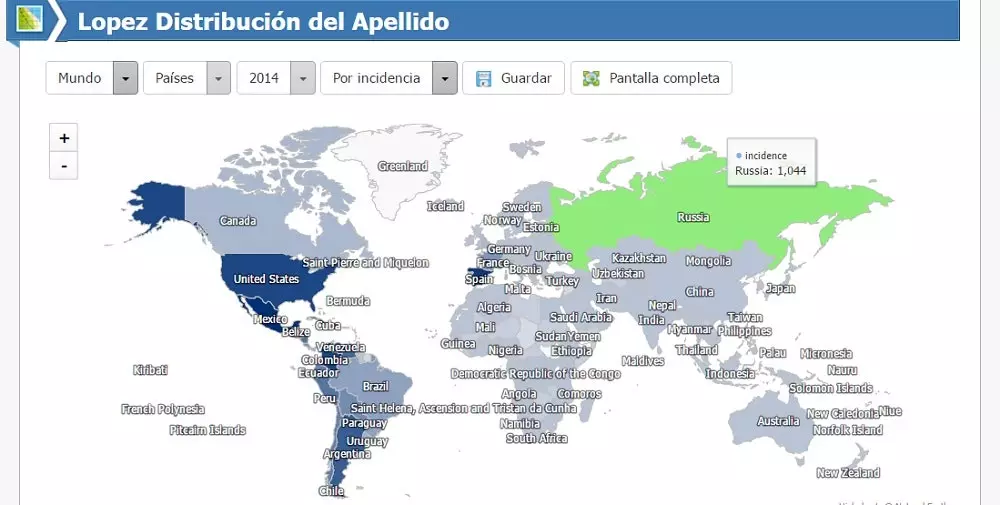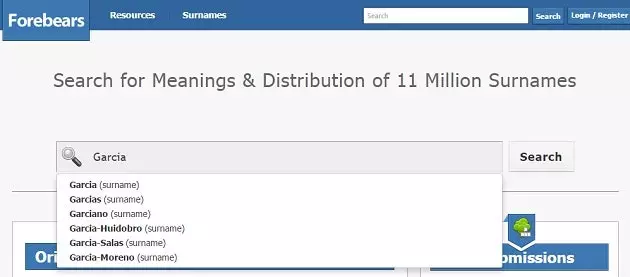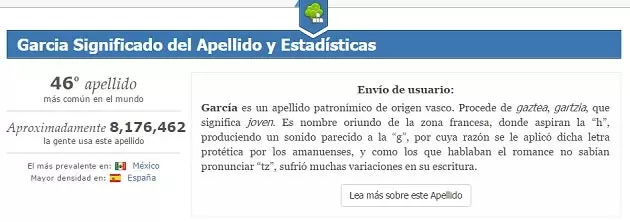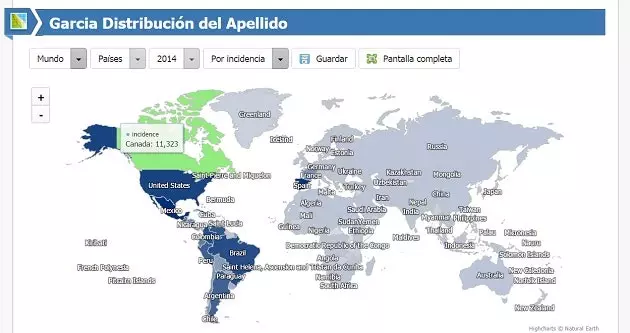
And yours, where and how much is used?
Who has not ever asked their parents the history of their last name? Or has he tried to find out by looking them up in the encyclopedia? How many people will use my last name? And if it is very common in Spain, will it also be so abroad?
Will I meet a Fernandez in Canada? And in China to some Crespo? Will there be any Sanz in South Africa? Most likely, the answer to all these questions is a resounding 'YES', but you can check it out at the Forebears website that, with a database of 11 million surnames, shows their distribution around the world.
This free access search engine is a treasure for genealogy lovers, in particular, and for those who are curious to know more about their last name, in general.
** Forebears shows information on the distribution of surnames in the world, the position each of them occupies in a universal ranking, the number of people who use it, the country in which it is most present and the one in which its density is higher.** And all with a simple search.
The procedure is very simple: just enter a surname in the search engine.

First step: enter the desired surname in the search engine
Then, the information appears: the position it occupies in a world list of surnames, the approximate number of people who use it, **the country where it is most used with the total number of people who use it, and the country in which which has a higher density (1 of every xxx inhabitants)**. In addition, in some cases, it shows information about the origin of the surname (normally sent by users who contribute to the web).

Below is quantitative and qualitative information about the surname
After the search, it also shows a world map with the highlighted names of the countries in which the surname in question is present. Hovering over each of them, you can see the number of people with whom you share a last name in each of those countries.
The results of the investigations conclude with two tables. The first sample in decreasing order the countries in which the searched surname is most used, its incidence in each of them and the position it occupies in the classification of the most used surnames in each country. The second reflects other surnames with a spelling very similar to the one used in the search.

Your surname map will look a lot like this
Forebears also offers another search method: by country. In this way, the information provided is that of what sources have been used to constitute the database and that of the most used surnames in that country. In the case of Spain, García, González, Rodríguez, Fernández and López occupy the TOP 5 of the most used . You can consult the rest of the list through this link.
This portal, which has been in operation since 2012, arose with the aim of bring together “the wide variety of genealogical sources available, both online and offline , and catalog them to make them easily accessible to those looking for data on ancestors in a particular country, region, or city.”
To do this, they use as sources data from records of births, baptisms, marriages, divorces, deaths, censuses, telephone directories... and, in the case of Spain, they have data from files on noble lineages and military files related to the period of the Civil War, among others.
Also, as a curiosity, **Forebears offers information on the history of the origin of surnames ** and the types that exist in the world: patronymics (inherited from the name of an ancestor, usually the father) ; occupational (coming from the trade of the family or an ancestor) ; topographical (motivated by geographical elements related to the location of the family) ; descriptive (they assure on the web that they are less common, since they were associated with negative characteristics of the person who wore them and that, at present, the few that remain are related to positive characteristics) and the matronymics , that is, those inherited from women, usually from the mother, and very rare.
